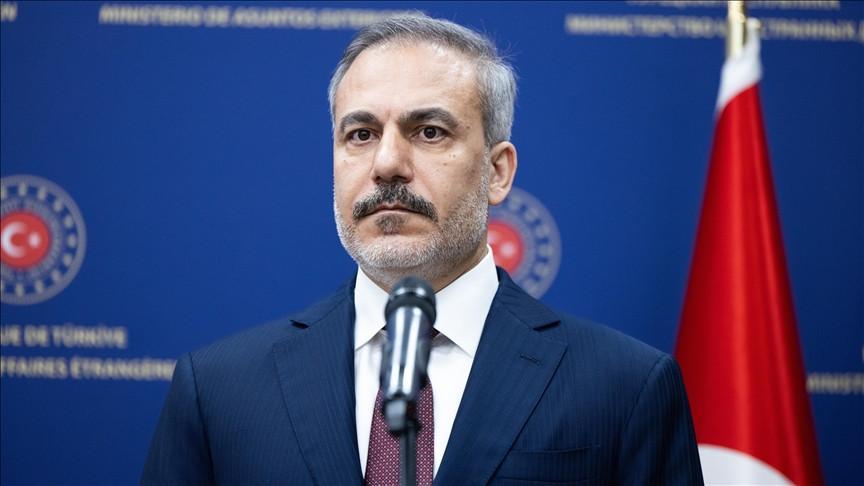
Foreign Minister Hakan Fidan said on Dec. 15 that countries in the Middle East must respect each other's borders and sovereign rights.
"It is time for the countries in the region to come together, embrace a culture of cooperation, and commit not only to respecting each other's borders and sovereignty but also to protecting one another," Fidan told Saudi Arabia’s Al Hadath television channel in an interview.
"By standing shoulder to shoulder, we must establish our own interests and order in the region. We do not want Iranian domination in the region, nor do we want Turkish or Arab domination," he added.
"All states have now reached a sufficient level of maturity and have strong foundations. There is a very strong Saudi Arabia, a very strong United Arab Emirates, an influential Qatar and Kuwait. Egypt is truly doing its best."
Fidan pointed out that otherwise, the region is intervened from outside, polarization is exploited and this leads to long-term, bloody and costly conflicts.
He said such intervention is unnecessary and pointed out that the people of the region can live openly and transparently without it.
It is possible to establish economic, political and military alliances in this region, just as they are being formed in Europe, North America and other parts of the world, he said.
The region's land is fertile, and its people are productive, hardworking and honest, Fidan added.
Fidan said that after 13-14 years of intense suffering, Syria has entered a new phase and noted that Türkiye shares a 911-kilometer (566-mile) border with Syria.
He emphasized that historical, geographical, cultural and religious bonds have deeply connected the two nations.
"When this troubled period in Syria began, the northern Syrian opposition turned to Türkiye for support. Millions of displaced refugees saw Türkiye as their home, and we welcomed them," he said, highlighting the importance of the Syrian opposition finding support in Türkiye.
Fidan underlined that Türkiye has been working hard to help the Syrian opposition resolve issues constructively.
He noted that the Astana process has played a key role, although the Bashar Assad regime had remained unwilling to find solutions for various reasons.
"Of course, as they shared power with Russia and Iran, they fought together but couldn't achieve the decisions they wanted because each country had different interests," he said.
"At a certain point, Assad failed in reconciling with his people, returning millions of displaced individuals, providing basic services to those already in Syria, and addressing the economic situation. As a result, the system eventually collapsed on its own."
After the operation began, Türkiye worked intensely with Hayat Tahrir al-Sham (HTS) and other opposition groups to ensure it was conducted in the most bloodless, problem-free and cost-effective way possible, he said.
"However, before that, we did not engage with any country or group in any planning efforts," Fidan added.
He highlighted that Türkiye, as an important regional player and a key friend of the opposition, has played an effective role by maintaining constructive dialogue to manage the process on certain issues. He emphasized that this dialogue would continue in the future.